In the United States, the legal dropout age is typically sixteen, although some states allow students to drop out as early as fifteen or require students to stay in school until they are eighteen. The decision to drop out of high school is a personal one that should be made after careful consideration of the pros and cons. On the one hand, dropping out of high school may give a student the freedom to pursue other interests or opportunities. On the other hand, dropping out of high school typically means forgoing the chance to earn a high school diploma, which can have negative consequences in the long run.
What Age Can You Drop Out Of High School?
In the United States, the legal age to drop out of high school is 16. However, some states allow students to drop out at age 14 or 15 with parental permission. There are a variety of reasons why students may choose to drop out of high school, including pregnancy, financial reasons, or poor grades.
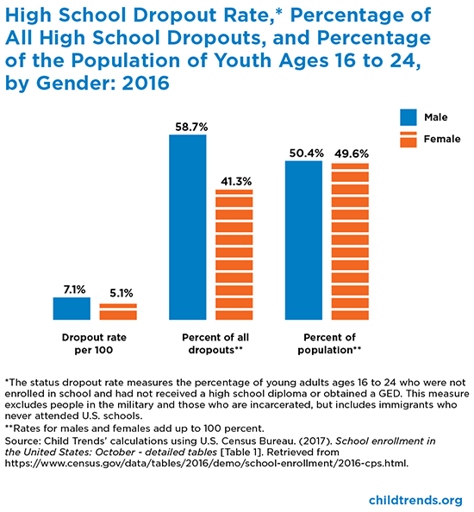
For example, some students may find that they learn better outside of the traditional school setting. There are some negative consequences to dropping out of high school. For example, dropouts earn less money, are more likely to be unemployed, and are more likely to go to jail. However, there are also some positive outcomes for dropouts.
If you are thinking about dropping out of high school, be sure to talk to your parents, teachers, or another trusted adult to get more information and make the best decision for your future. The decision to drop out of high school is a personal one that should be made after careful consideration.
What Age Can You Dropout Of School With Parental Consent?
However, some states allow students to drop out of high school with parental consent as early as 14 years old. In the United States, most states require students to attend school until they are at least 16 years old.
In other cases, the child may be facing personal or family challenges that make it difficult to attend school on a regular basis. There are a number of reasons why a parent might consent to their child dropping out of high school. In some cases, the child may be struggling in school and the parent may feel that they would be better off in a different educational setting.

In addition, dropping out of high school increases the likelihood of involvement in the criminal justice system. Whatever the reason, it is important to remember that dropping out of high school can have a major impact on a child’s future. Dropping out of high school is associated with lower levels of educational attainment, lower levels of employment, and lower earnings.
If you are a parent considering whether or not to consent to your child dropping out of high school, it is important to weigh all of the potential consequences carefully. You should also consider whether or not there are other options that could better meet your child’s needs, such as transferring to a different school or receiving tutoring or other forms of academic support.
What Age Can You Dropout Of School Without Parental Consent?
Some states allow students to drop out with parental consent as young as 14 or 15. The legal dropout age varies from state to state, but is generally between 16 and 18 years old.

Most states require students to attend school until they turn 18, although a few states allow students to drop out at age 17 with parental consent. A handful of states have dropout ages below 17. In Alabama, students can drop out at age 16 with parental consent. In Colorado, students can drop out at age 17 with parental permission.
The majority of states have a legal dropout age of 18. In these states, students can only drop out of school before they turn 18 if they have parental consent.
In 2007, Ohio raised its dropout age from 17 to 18. In 2009, Florida and Georgia followed suit, raising their dropout ages to 18. A few states have raised the dropout age in recent years in an effort to improve graduation rates.
Legal Age To Dropout Of School By State
In most states, the legal age is 16, but in some states it is 17 or 18. Some states have different age limits for different types of schools. The legal age to drop out of high school varies by state. For example, in New York, the legal age to drop out of public school is 16, but the legal age to drop out of private school is 17.
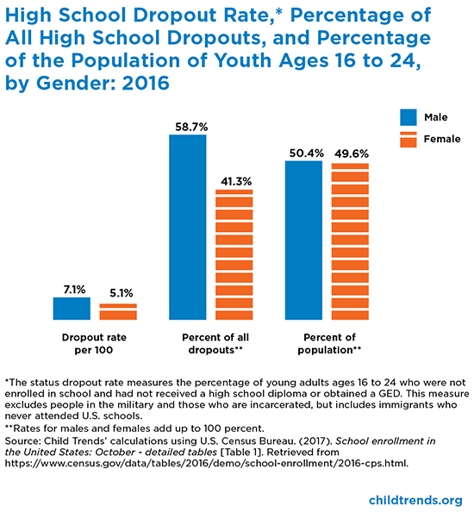
Others may be struggling with personal issues such as bullying or family problems. Some students may feel that they are not ready for the academic rigors of high school. There are a number of reasons why a student may choose to drop out of high school. Some students may simply feel that they are not interested in the curriculum or their classmates.
Students who drop out are more likely to struggle financially and have difficulty finding stable employment. Whatever the reason, dropping out of high school can have serious consequences. They are also more likely to experience health problems and have difficulty raising a family.
What Age Can You Dropout Of High School In Texas?
Additionally, students who are 16 or 17 and are married, on active duty in the military, or have been emancipated by a court may also withdraw from school. If a student is 16 or 17 and has either completed the requirements for a high school diploma or certificate of high school equivalency, or has been accepted into an institution of higher education, they may withdraw from school. In Texas, the legal age to drop out of high school is 17. However, there are some exceptions to this rule.
What Age Can You Dropout Of High School In Florida?
In Florida, the legal age to drop out of high school is 16. However, students who drop out before they turn 18 may be required to complete a high school equivalency program before they are eligible to receive a diploma.
High School Drop Out Rate
The high school drop out rate in the United States has been on a steady decline in recent years. However, there are still nearly 1.3 million students who drop out of high school each year. In 2015, the drop out rate was just over 7%, down from a high of over 10% in the early 1990s.
Others may have personal or family problems that make it difficult to stay in school. Still others may be working and attending school, and find that they cannot manage both. Some students may feel that they are not academically successful and that they will not be able to graduate. There are a number of reasons why students may drop out of high school.
They are also more likely to have health problems and be involved in crime. Students who drop out are less likely to find jobs and earn a living wage, and are more likely to end up in poverty. Whatever the reason, dropping out of high school can have serious consequences.
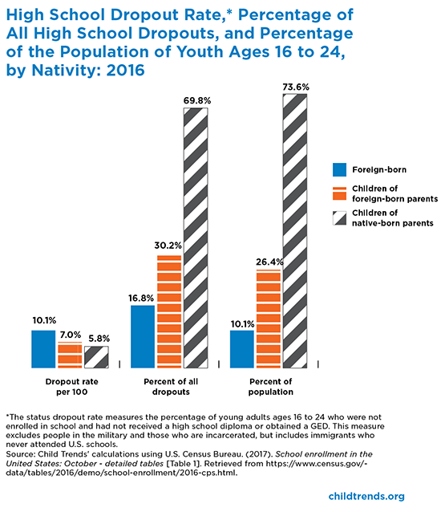
If you are considering dropping out of high school, it is important to talk to someone about your decision. There may be resources available to help you stay in school and succeed.
How To Drop Out Of High School
Whatever the reason, dropping out of high school is a big decision that should not be made lightly. They may be working and feel like they need to focus on their job, or they may be struggling in school and feel like they are not meeting their potential. Most students who drop out of high school do so because they feel they are not getting anything out of it. If you are considering dropping out of high school, here are a few things to keep in mind.
What Does Dropping Out Of High School Mean?
For others, it may mean taking a break from school to work or travel before returning to finish their degree. Dropping out of high school can mean different things for different people. For some, it may mean leaving school before graduation to pursue other opportunities.
There are a few things to consider if you’re thinking about dropping out of high school. If you’re not sure what you want to do after high school, it may be worth staying in school to explore your options. First, think about your future goals and whether or not finishing high school will help you reach them.
Dropping out of high school may also make it harder to get a job in the future. If you’re planning to go to college, you may need to take out student loans to cover the cost of tuition. Second, consider the financial implications of dropping out of high school.
Dropping out of high school may mean missing out on important experiences, like prom and graduation. It may also mean spending more time with friends who have also dropped out of school. Third, think about your personal and social life.
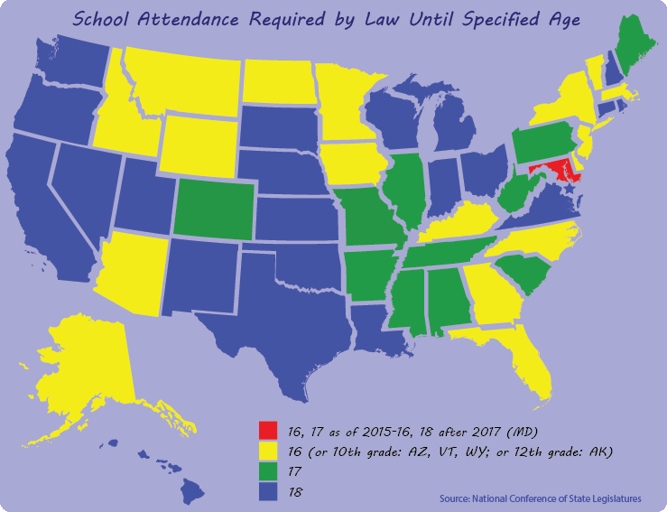
If you’re thinking about dropping out of high school, talk to your parents, teachers, or a guidance counselor to get more information and help you make a decision.
What Happens If You Drop Out Of High School?
You may also have a hard time getting financial aid for college. There are a few things that could happen if you drop out of high school. You may not be able to get into the college of your choice, or you may not be able to get a job that you want.
Benefits Of Dropping Out Of High School
There are many benefits to dropping out of high school. For one, you will no longer have to attend classes or take tests. Additionally, dropping out of high school can help you save money on tuition and other associated costs. Finally, dropping out of high school can give you a sense of freedom and independence. You will also have more time to pursue your own interests and goals.
How To Finish High School After Dropping Out
You can take the GED test to earn your high school equivalency diploma. There are a few ways that you can finish high school after dropping out. You can also join the military, which will pay for your high school education. You can also take online courses or get a tutor to help you finish high school.
People Who Dropped Out Of High School
In the United States, the legal dropout age is typically 16, although some states have enacted laws that allow students to drop out as early as 15 or 14. In general, students who drop out of high school do so for a variety of reasons, including financial difficulties, academic struggles, family obligations, or pregnancy.
High school dropouts earn significantly less than their peers who graduate, and are more likely to be unemployed or incarcerated. While the high school dropout rate has declined in recent years, there are still nearly 1 million students who leave school each year without a diploma.
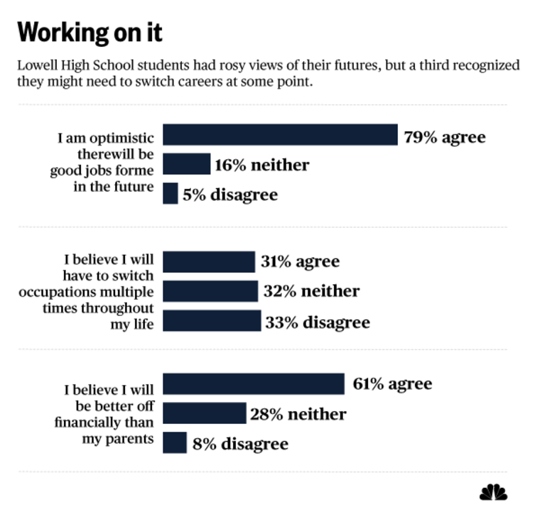
With hard work and determination, dropouts can earn their GED or return to school to complete their diploma. Despite the challenges, many students who drop out of high school go on to lead successful lives.
Billionaires Who Dropped Out Of High School
Billionaires Who Dropped Out Of High School:

1. Bill Gates: Co-founder of Microsoft Corporation
2. Steve Jobs: Co-founder, Chairman and CEO of Apple Inc.
3. Mark Zuckerberg: Co-founder and CEO of Facebook
4. Larry Ellison: Co-founder and CEO of Oracle Corporation
5. Michael Dell: Founder and CEO of Dell Technologies
6. Richard Branson: Founder of the Virgin Group
7. Jan Koum: Co-founder and CEO of WhatsApp
8. Evan Spiegel: Co-founder and CEO of Snapchat
Celebrities Who Dropped Out Of High School
Some of these celebrities include: There are many celebrities who have dropped out of high school.
1. Tom Cruise: Tom Cruise dropped out of high school at the age of 18 to pursue his acting career. He has since gone on to become one of the most successful actors in Hollywood.
2. Leonardo DiCaprio: Leonardo DiCaprio dropped out of high school at the age of 16 to pursue his acting career. He has since gone on to become one of the most successful actors in Hollywood.

She has since gone on to become one of the most successful actresses in Hollywood. 3. Cameron Diaz: Cameron Diaz dropped out of high school at the age of 16 to pursue her modeling career.
She has since gone on to become one of the most successful pop singers in the world. 4. Britney Spears: Britney Spears dropped out of high school at the age of 16 to pursue her music career.
He has since gone on to become one of the most successful pop singers in the world. 5. Justin Bieber: Justin Bieber dropped out of high school at the age of 16 to pursue his music career.
Frequently Asked Questions
1. Can I drop out of high school at any age?
No, you cannot drop out of high school at any age. You must be at least 16 years old to legally drop out of high school in most states.
2. Why would I want to drop out of high school?
There are a few reasons why someone might want to drop out of high school. Maybe they’re not doing well in school and they don’t think they’ll be able to graduate. Or maybe they need to start working to support their family.
3. What are the consequences of dropping out of high school?
There are a few consequences of dropping out of high school. One is that you’ll likely have a harder time finding a job. Employers often prefer to hire people with a high school diploma. Another consequence is that you’ll miss out on the opportunity to further your education.
4. I’m not sure if I’m ready to drop out of high school. What should I do?
If you’re not sure if you’re ready to drop out of high school, you should talk to your parents, teachers, or a guidance counselor. They can help you make the decision that’s right for you.
5. I’ve already dropped out of high school. Can I go back?
Yes, you can go back. You can earn your high school diploma through a GED program or an adult education program.
Final thoughts
There is no one answer to the question of what age students should be allowed to drop out of high school. Every student is different, and each situation is unique. Some students may be ready to leave high school at age 16, while others may not be ready until they are 18 or 19. The most important thing is that students and their families make the decision that is best for the student’s individual needs and circumstances.